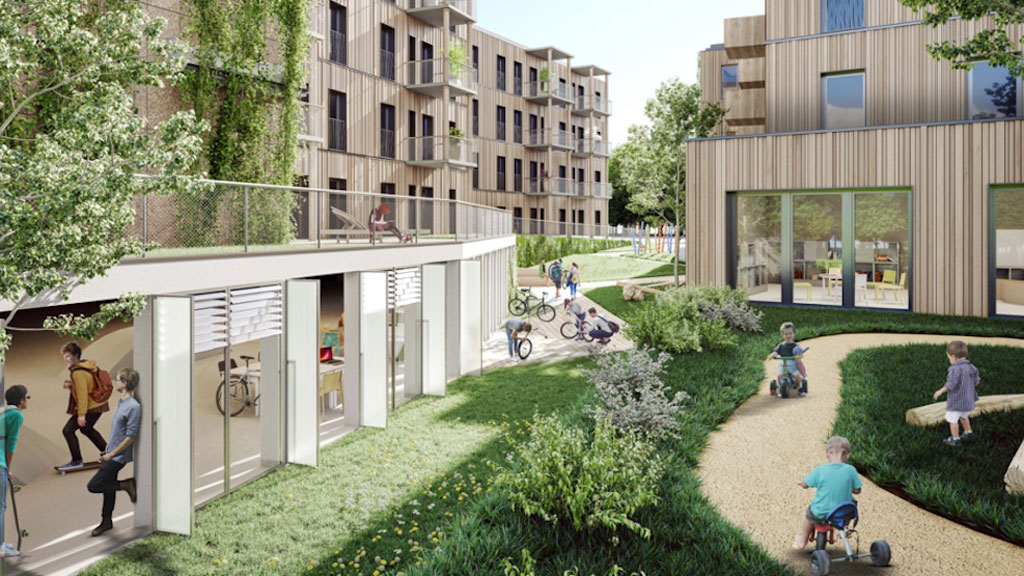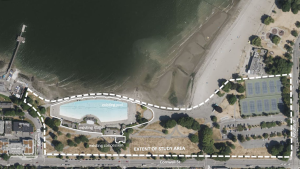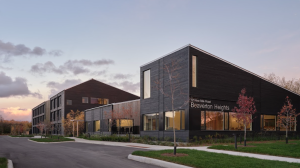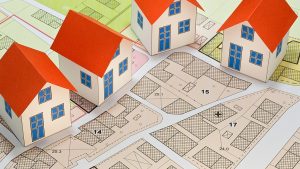A cultural exchange is underway between the City of Vancouver and the City of Vienna, Austria. The cities aim to exchange information about affordable and sustainable construction through pilot projects named after one another.
According to the City of Vancouver, Vienna House will be a six-storey building that includes 100 affordable rental homes with a total floor area of about 83,000 square feet.
Chris Higgins, senior green building planner for the city, explained the two cities intend to collaborate on net zero emissions, retrofits, economic development and data sharing.
Researchers from University of British Columbia will document the project and share their research.
“We have opened up a two-way dialogue,” said Higgins. “Vancouver, through Vienna House, is trying to learn about building affordable, elegant, beautiful new social housing that also has a light environmental footprint.”
Higgins explained the research will touch on procurement methods, development, how units are laid out, outdoor space utilization and mass timber.
“Eighty-five per cent of new housing in Vienna is built by the government,” said Higgens. “And they are not just building for those with modest incomes. We are learning and understanding how that system is set up. The second piece is addressing the climate crisis.”
John Wall, an architect with Public: Architecture + Communication, said the team has already participated in two workshops to learn the high-level thinking behind how Vienna is approaching social housing.
“It is nice to have this expertise from a city well known for their excellence in sustainability and social housing,” he said.
While Vienna has a different process that doesn’t make all ideas transferable, the city’s ideas about prefabrication, repeatable unit design, flexible units, adaptive reuse of spaces in the future and decommissioning could be.
For example, Vienna experts presented projects where bathroom unit layouts were stacked on top of each other making plumbing work much easier and designing the layout of parking lots to be ideal for adapting to reuse later as parking potentially becomes less common.
Wall noted the Vienna House project site presents some unique challenges, mainly due to its uncommon oblong shape and proximity to the SkyTrain.
“Our biggest challenge frankly is dealing with the SkyTrain line,” said Wall, who explained the nearby line is a turn which means a lot of noise for tenants as the train cars brake.
“Livability will be the big balance for use,” said Wall. “We want to ensure we are producing livable units and sustainable units.”
Wall added he also intends to use simple, repeatable construction methods and materials to achieve sustainability and affordability.
For Public: Architecture + Communication, designing to passive house standards is no mystery, but the goal is to make the process accessible to more developers and builders.
“We are not trying to do a moon landing here,” said Wall, who estimated Vancouver’s construction sector is roughly a decade behind Vienna. “We are just helping the market to get to the next level.”
Wall explained he hopes projects like Vienna House will encourage more developers and owners to embrace things like passive house standards and prefabrication.
“The trades can do it,” said Wall. “Give them a chance. They like a challenge and they want to do interesting work. Give them a shot.”
He noted as climate change impacts increase, improving a building’s resiliency and livability will become more and more important.
Wall added the design process for the building is expected to take roughly a year.
Follow the author on Twitter @RussellReports.











Recent Comments